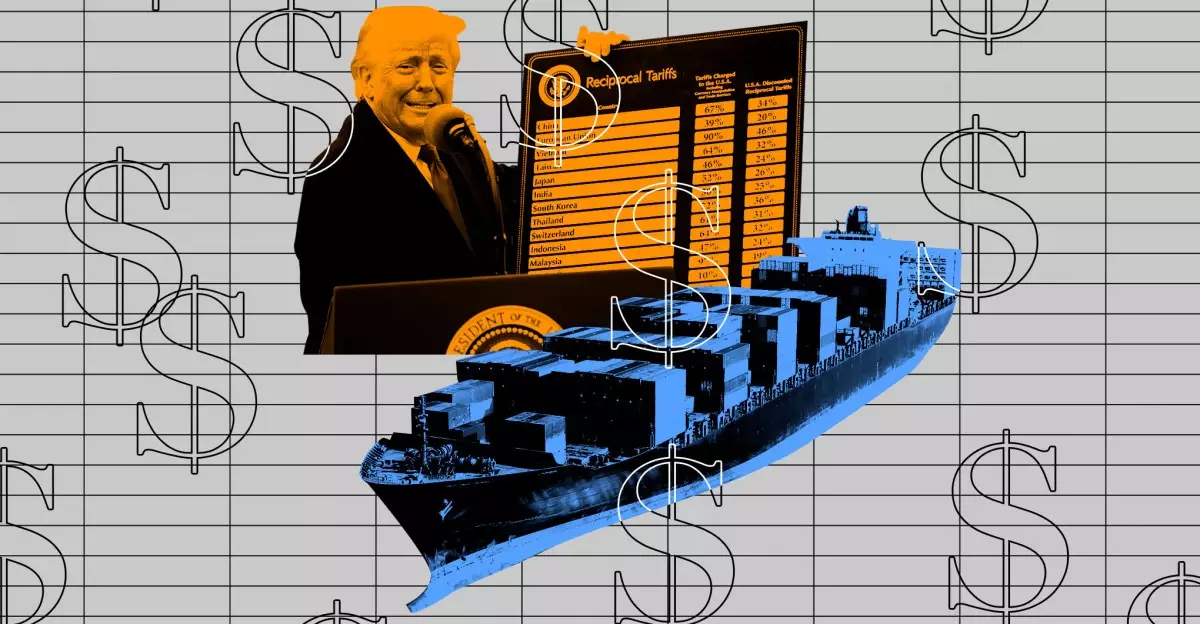In a significant development for the tech industry, recent updates from US Customs and Border Protection have provided much-needed relief to consumers and manufacturers alike by exempting several critical categories of electronic imports from tariffs. This change comes on the heels of a tumultuous tariff environment initiated during the previous administration, which often placed burdensome rates on imported goods, particularly from China. By re-evaluating the implementation of these tariffs, the US government aims to foster innovation while maintaining competitive pricing for consumers amid the volatile market driven by trade tensions.
Although the initial tariffs on electronics were positioned as a financial strategy to curb imbalances in trade relationships, it eventually led to an increased cost burden for everyday consumers. With the new updates, items like smartphones, laptops, hard drives, and chips will now face fewer economic hurdles, making them more accessible in a landscape where technological advancement is increasingly critical. This exemption reflects a shift in policy intent, emphasizing the importance of seamless access to high-tech goods that consumer electronics have come to represent.
The Implications for Global Supply Chains
One of the most profound effects of these tariff exemptions will likely be felt throughout global supply chains. At a time when many technology firms are struggling to adapt their logistics to meet both heightened consumer demand and the complexities stemming from international relations, reassessing these tariffs could serve as a stabilizing force. Companies like Taiwan Semiconductor Manufacturing Co. stand to benefit significantly from reduced tariffs on their essential machinery, potentially accelerating the production of semiconductors necessary for advancing technologies.
In practical terms, this means that innovations in everything from smartphones to advanced computing will likely proceed without the specter of increased costs. For an industry that thrives on rapid progression and forward-thinking solutions, these changes represent a critical stepping stone toward consolidating technological advancements that effectively serve consumer needs. Such relief from tariffs also allows companies to invest more resources in research and development, fueling future innovation rather than merely inflating prices.
The Market’s Response: Adapting to Fiscal Changes
In the wake of the revised tariffs, market responses have begun to emerge, signaling a cautious optimism among tech companies. For example, notable brands like Sony and OnePlus have already adjusted their pricing strategies, potentially influenced by the developments in tariff guidelines. While some companies openly acknowledge these changes by modifying their pricing structures in anticipation of reduced costs, others are opting for a more conservative approach, maintaining existing prices amidst uncertainty.
This cautiousness among manufacturers highlights the complexity of navigating a fluctuating market landscape marked by political and economic shifts. For instance, Nintendo’s decision to delay preorder launches for the anticipated Switch 2 reflects their understanding of the fragility of consumer confidence during such tumultuous times. Pricing strategies are now carefully weighed against potential tariffs, leaving companies in a continuous state of vigilance regarding how they approach product launches and pricing adjustments.
A New Competitive Edge for Businesses
The exemption of tariffs represents an opportunity for businesses to gain a competitive edge in the technology sector. With the looming threat of inflation and price hikes diminishing somewhat, manufacturers can now concentrate on what matters most—their products and the customer experience. A healthier bottom line allows for reinvestment into cutting-edge technology, advancements that ultimately benefit consumers seeking reliable access to well-priced electronics.
Furthermore, the focus on re-establishing crucial relationships with foreign markets, especially in the realm of consumer electronics, cannot be overstated. US-based companies are likely to leverage these tariff exemptions to facilitate stronger collaborations and streamlined operations with international suppliers, paving the way for sustained economic growth in the tech sector. With reduced barriers, we may witness an influx of innovative products that are both affordable and aligned with shifting consumer preferences.
The newly adopted guidance from US Customs and Border Protection could signal the dawn of a new era for the consumer tech market. As barriers are lifted, companies are poised for unprecedented growth, fostering an environment ripe for innovation and improved consumer access to technology. With tariffs no longer serving as a significant hindrance, the potential for a revitalized tech landscape is more promising than ever.


Leave a Reply